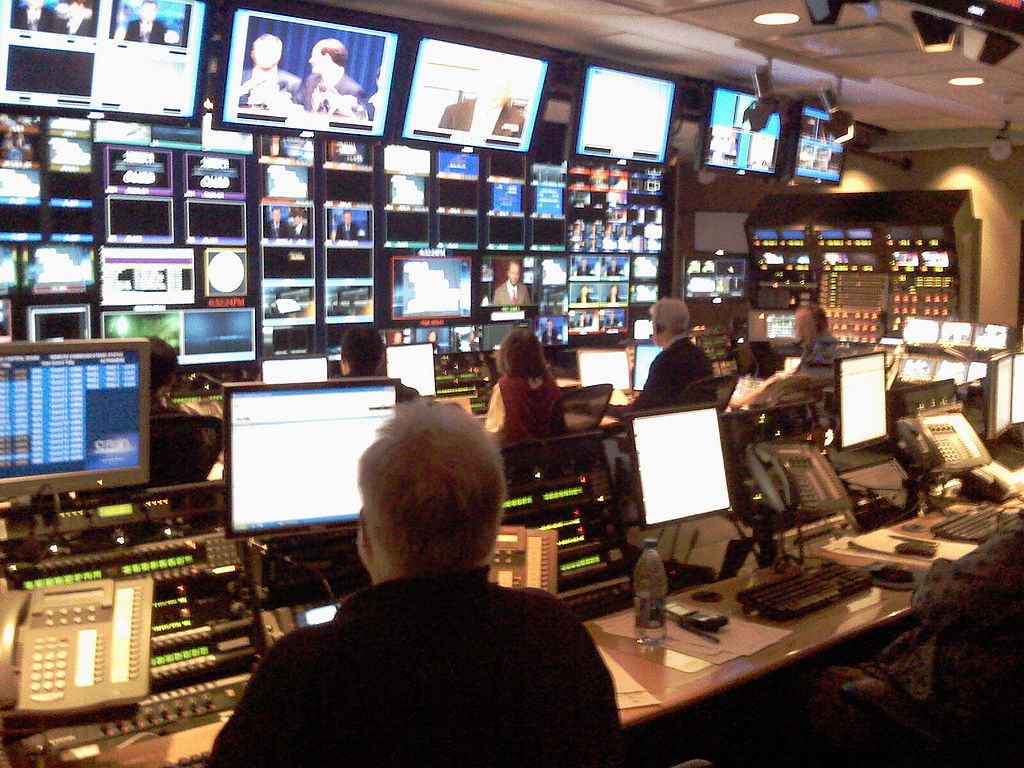Breaking news: the media is in crisis.
Throughout the election coverage in which the media shot themselves in the foot this season, the silver bullets all came from people on the inside – media professionals. They understand how their outlets have failed us this election season, or in some cases, they’re exemplifying such failure.
In a Sept. 4 roundtable on CNN, former network anchor Soledad O’Brien captured the essence of her own outlet’s shortcomings, which she described as utilizing “contortions to make things seem equal all the time” when comparing presidential nominees Donald Trump and Hillary Clinton.
For example, O’Brien notes the network will invite self-professed white supremacists for a brief interview to counter Hillary Clinton’s “very good arguments” that Trump himself has “normalized white supremacy,” and indirectly calls out CNN itself for inviting these demagogues.
In the spirit of “getting both sides” taught by so many journalism professors, CNN forgets that not all – in fact, very few – stories have only two sides. Continuing with the “normalizing white supremacy” story, O’Brien points out that her network will often address the “other side” by noting that “Donald Trump will say, ‘Hillary Clinton, she’s a bigot,’ and it’s covered.”
O’Brien’s entire argument was captured on video for internet posterity, and it’s an exchange worth seeking out. In traditional journalism classes, we are taught that a solid story needs at least three sources and some statistics or data to make it strong.
On CNN, O’Brien posits, a solid story merely needs one statement from one “side,” another statement from the opposing, and that’s a wrap. Story over. No further coverage needed. Journalists aren’t being journalists, and watching her get to the heart of her grievances against her former network– on a show produced and presented on said network – is a somber shout into the void for change. It’s uncertain whether the media outlet will respond.
Our tour of media disasters continues with MSNBC’s Sept. 7 forum for the two nominees, and moderator Matt Lauer’s surface-level handling of candidates’ claims. He advised Clinton to explain “as briefly as [she] can” her plan to defeat ISIS, continuing a pattern of close questioning reserved for female politicians, and later chose not to fact-check Trump’s assertion that he “was totally against the war in Iraq” (he wasn’t).
Lauer’s performance casts a pallor on his network as well as future moderators. The situation is sticky in that Lauer is a newsreader, not a political reporter, but it requires any future hosts to doubly exceed those expectations with real-time fact-checking and investigating. It’s imperative that when NBC News’ Lester Holt gets in the moderator’s seat for the first debate on Sept. 26, he takes action to course-correct.
In this current media climate, however, it’s tough to intuit whether they’ll rise to a higher standard.
Case in point: we find that it’s not only CNN and MSNBC that are floundering in campaign coverage.
On Sept. 5, the New York Times’ Paul Krugman penned an op-ed describing the many ways the media is grading Clinton on a curve: Trump “looks more presidential” when reading from a prompter and is “heading into the mainstream” when he “seems to suggest” an apprehensiveness toward deportation. Meanwhile, Krugman says, Clinton is getting grilled on her billion-dollar charitable Clinton Foundation, which “raises [accusatory] questions” due to its size – “the answers … are, very clearly, ‘no.’”
It’s the little things – basic reading skills and human decency – that score points for Trump and the big things – charitable contributions – that knock Clinton down. Maybe it’s because of the Clintons’ checkered past or the fact that Trump is a businessman entering the political realm, but the media shouldn’t be treating both with such vague strokes. They’re both running for the same office, so they should be treated the same.
What’s the media to do?
Well, it’s important for journalists to raise questions, of course, but it becomes ridiculous when they (air-quotes here) “raise questions.” Dig deeper, news networks. Don’t settle for the old “two sides of every story” argument.
We can look at aggressive journalistic endeavors such as the Center for Investigative Reporting or The Intercept to discover the media we should be looking up to. Their stories are broader and more in-depth than the election season, multi-feature projects on drone strikes and drug cartels, but by that same token, we should be expecting such investigative coverage for such a weighty decision.
On the consumer side, we can raise our own questions as to whether or not the news media is giving us the coverage we deserve. We can seek out multiple sources of information and patronize news outlets that do the investigative digging.
One final example: “questions” regarding Clinton’s health in the wake of a coughing fit at a Labor Day rally – once in the realm of conservative conspiracy theory are now a condition that’s infected the mainstream media – have dogged her for the past few weeks, such as in NBC News’ headline “Hillary Clinton Fights Back Coughing Attack:” an implicit raised eyebrow, a product of such theory and rumor. MSNBC’s Andrea Mitchell quizzed the candidate on her health at a campaign rally in August, and Clinton did the only thing she could: she laughed out loud.
Can anyone blame her? Yes, conservative media portrayed the response as a dismissal of a key issue. But when NBC devotes an entire story to the coughing fit during a memorial service and CNN devotes a subsection of its own “Coughgate” coverage to explaining what exactly a cough is (to be fair, officials recently diagnosed Clinton with pneumonia after stumbling at a 9/11 memorial), it’s hard to believe anyone would look at current media without laughing.
Unfortunately, the media isn’t in on the joke.




